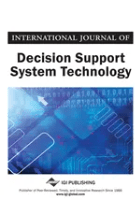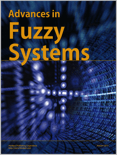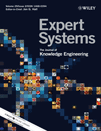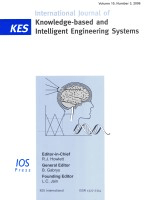
International Journal of Fuzzy Systems
Scope & Guideline
Transforming Complexity into Clarity through Fuzzy Logic
Introduction
Aims and Scopes
- Fuzzy Control Systems:
Research on the design, analysis, and implementation of fuzzy control systems, particularly for nonlinear and uncertain systems, is a primary focus. This includes adaptive fuzzy control, event-triggered control, and fault-tolerant control strategies. - Fuzzy Decision-Making Methods:
The journal publishes work on multiple attribute decision-making (MADM) methods that utilize fuzzy logic, such as TOPSIS, VIKOR, and PROMETHEE, to enhance decision-making processes under uncertainty. - Applications in Robotics and Automation:
Significant contributions are made in the application of fuzzy systems in robotics, particularly in trajectory tracking, formation control, and fault detection in autonomous systems. - Fuzzy Systems in Healthcare:
The journal explores applications of fuzzy systems in healthcare, including diagnostic systems, treatment planning, and patient monitoring, emphasizing the role of fuzzy logic in managing uncertainty in medical data. - Integration with Machine Learning and AI:
A growing area of research involves the integration of fuzzy systems with machine learning and artificial intelligence techniques, focusing on enhancing predictive models and decision-making frameworks. - Fuzzy Modeling and Simulation:
Research focused on the development of fuzzy models for various applications, including environmental modeling, economic systems, and industrial processes, is a key aspect of the journal's scope.
Trending and Emerging
- Advanced Adaptive Control Techniques:
There is an increasing focus on advanced adaptive control techniques for complex systems, particularly those that require real-time adjustments and fault tolerance, showcasing the demand for robust control mechanisms. - Hybrid Fuzzy Systems:
Research on hybrid systems that integrate fuzzy logic with other computational intelligence techniques, such as neural networks and genetic algorithms, is gaining traction. This trend reflects a broader interest in creating more versatile and capable systems. - Fuzzy Systems in Data Science and Big Data:
The application of fuzzy logic in data science, particularly for handling uncertainty in big data analytics and machine learning, is a growing area of interest, highlighting the relevance of fuzzy systems in modern data-driven environments. - Sustainable and Green Technologies:
Emerging research focuses on applying fuzzy systems to promote sustainability and green technologies, addressing challenges in environmental management and resource optimization. - Fuzzy Systems in Cybersecurity:
The application of fuzzy logic in cybersecurity, particularly for intrusion detection and risk assessment, is becoming increasingly prominent as organizations seek to enhance their security measures in the face of evolving threats.
Declining or Waning
- Classical Fuzzy Set Theory:
There has been a noticeable decrease in publications strictly focused on classical fuzzy set theory without application to modern technologies or integration with other methodologies. - Simple Fuzzy Logic Applications:
Research centered around basic applications of fuzzy logic without the incorporation of advanced techniques, such as AI or hybrid systems, appears to be waning as the field evolves towards more complex and integrated approaches. - Fuzzy Systems in Traditional Industries:
The application of fuzzy systems in traditional industries, such as manufacturing and agriculture, has seen a decline, likely due to the emergence of more sophisticated technologies and methodologies. - Theoretical Fuzzy Mathematics:
While foundational research remains important, the focus on purely theoretical advancements in fuzzy mathematics without direct applications has become less prevalent, as researchers increasingly seek practical implementations.
Similar Journals

ASIAN JOURNAL OF CONTROL
Navigating the Frontiers of Control and Systems EngineeringWelcome to the Asian Journal of Control, an esteemed publication in the fields of Control and Systems Engineering as well as Electrical and Electronic Engineering, published by WILEY. With a continuous convergence from 2000 to 2024, this journal serves as a vital platform for researchers, professionals, and students, offering high-quality peer-reviewed articles that drive innovation and advancement in various control strategies and systems. The journal is renowned for its rigorous academic standards, reflected in its impressive Scopus rankings, with a percentile of 90th in Mathematics (miscellaneous) and 67th in Engineering Control and Systems. Although it does not currently offer open access, the Asian Journal of Control remains an indispensable resource for those looking to push the boundaries of knowledge in engineering disciplines. With its Q2 category ranking in both relevant fields, the journal is poised to influence future research and applications, making it a must-read for those invested in the evolving landscape of control technologies.

International Journal of Decision Support System Technology
Bridging Theory and Practice in Decision Support Systems.International Journal of Decision Support System Technology, published by IGI Global, is a leading publication in the field of decision support systems, bridging the gap between theoretical advancements and practical applications. With its ISSN 1941-6296 and E-ISSN 1941-630X, this journal has been a prominent platform for researchers and professionals since its inception in 2009. Covering a wide range of topics within the realms of Computer Science and Modeling and Simulation, it currently holds rankings of Q3 and Q4, respectively, in the 2023 category quartiles. The journal is committed to disseminating innovative research that enhances decision-making processes through advanced computational techniques. Even without an open access option, it maintains a robust academic presence and aims to foster collaboration among scholars, making it an invaluable resource for students and professionals eager to stay at the forefront of technology and decision-making methodologies. With a focus on accessibility and relevance, the International Journal of Decision Support System Technology continues to shape the future of decision support research.

International Journal of Automation and Computing
Championing Quality Research in Automation TechnologiesInternational Journal of Automation and Computing, published by SPRINGERNATURE, is a premier academic journal dedicated to advancing knowledge in the fields of applied mathematics, computer science applications, control and systems engineering, and modeling and simulation. With an impressive impact factor and consistently ranked in the Q1 Quartile for its respective categories in 2023, the journal is recognized for its high-quality research and contributions to the automation and computing sectors. This journal provides open access to its articles, promoting the dissemination of innovative ideas and methodologies across a global audience. Based in China but serving an international community, the journal is key for researchers, professionals, and students looking to stay at the forefront of automation and computing technologies. Its rigorous peer-review process ensures that published works meet the highest scientific standards, making it an essential resource for those seeking to deepen their understanding and engage in cutting-edge research.

Advances in Fuzzy Systems
Advancing Knowledge in Fuzzy Systems and BeyondAdvances in Fuzzy Systems, published by Hindawi Ltd, is a premier open-access journal dedicated to the interdisciplinary field of fuzzy systems, mathematics, and engineering. Since its inception in 2008, this journal has provided a vital platform for researchers to share innovative ideas and advancements in fuzzy logic and its applications across various domains. With an impressive standing in the field, it holds a Q3 quartile ranking in the highly competitive categories of Computational Mathematics, Control and Optimization, and Control and Systems Engineering, reflecting its significant contribution to advancing knowledge and practices in these areas. The journal's Scopus rankings highlight its relevance, with rankings placing it in notable percentiles, ensuring that the research published is both influential and widely recognized. Researchers, professionals, and students can access a wealth of high-quality articles that drive progress in fuzzy systems methodologies, making it an essential resource for anyone looking to enhance their understanding and application of this critical field.

International Journal of Fuzzy Logic and Intelligent Systems
Advancing the Frontiers of Fuzzy Logic and IntelligenceInternational Journal of Fuzzy Logic and Intelligent Systems, ISSN: 1598-2645, is a prestigious journal published by the Korean Institute of Intelligent Systems, dedicated to advancing the fields of Artificial Intelligence, Computational Theory and Mathematics, Computer Science Applications, Logic, and Signal Processing. Established to foster interdisciplinary research, this journal has quickly established its reputation, reaching a respectable Q3 quartile ranking across multiple categories in 2023. It serves as a vital resource for researchers, professionals, and students, offering insights into cutting-edge methodologies and innovative applications of fuzzy logic and intelligent systems. With a focus on disseminating high-quality research, the journal attracts contributions that drive the evolution of intelligent technologies and their practical implications. Published from South Korea, the journal is positioned to impact the global community, facilitating a deeper understanding of intelligent systems in various domains.

EXPERT SYSTEMS
Transforming Ideas into Impactful Intelligent Systems Research.EXPERT SYSTEMS is a prestigious journal published by WILEY, dedicated to advancing the fields of Artificial Intelligence, Computational Theory and Mathematics, Control and Systems Engineering, and Theoretical Computer Science. Established in 1984, this journal has consistently provided a platform for rigorous research, showcasing innovative methodologies and applications that drive the future of intelligent systems. With an impressive impact factor and Scopus rankings placing it among the top quartiles within its categories, EXPERT SYSTEMS is a vital resource for researchers, professionals, and students seeking to deepen their understanding of complex systems and their applications. The journal is not currently an Open Access publication, emphasizing its commitment to high-quality, peer-reviewed research that impacts the global academic community. With a convergence year extending to 2024, it prepares to continue its legacy as a cornerstone of knowledge in these dynamic fields.

Fuzzy Information and Engineering
Exploring Interdisciplinary Insights in Fuzzy EngineeringFuzzy Information and Engineering is a prestigious open access journal recognized for its contributions to the interdisciplinary fields of applied mathematics, control systems engineering, artificial intelligence, and information systems, published by TSINGHUA UNIVERSITY PRESS. With an impact factor that reflects its increasing influence, the journal has maintained a strong position in the academic community since its inception in 2011, converging its focus between 2014 and 2024. The journal is indexed in notable databases such as Scopus, demonstrating solid rankings across its categories, including a commendable Q3 classification in applied mathematics and control systems engineering. By fostering innovative research and disseminating key findings, Fuzzy Information and Engineering serves as a vital platform for researchers, professionals, and students alike, promoting advancements in fuzzy systems and their applications within diverse domains. Notably, since transitioning to an open access model in 2015, the journal has enhanced accessibility for a global audience, encouraging collaborative efforts in academia and industry.

Malaysian Journal of Mathematical Sciences
Transforming Ideas: Connecting Scholars Through MathematicsMalaysian Journal of Mathematical Sciences, published by UNIV PUTRA MALAYSIA PRESS, serves as a prominent platform for the dissemination of innovative research in the field of mathematics. With an ISSN of 1823-8343 and spanning from 2007 to 2024, this journal places a particular emphasis on general mathematics while welcoming contributions that touch on various interdisciplinary applications. Despite its current positioning in Q4 of the mathematics category and ranking #239 out of 399 in Scopus, the journal actively aims to enhance the visibility and impact of mathematical research within Malaysia and the broader academic community. It provides crucial access to emerging ideas, making it an essential resource for researchers, professionals, and students eager to stay abreast of contemporary developments in mathematical sciences. The journal's commitment to open access ensures that findings are readily available to a global audience, fostering collaboration and discussion among scholars worldwide.

International Journal of Knowledge-Based and Intelligent Engineering Systems
Unleashing Potential through Intelligent System ResearchThe International Journal of Knowledge-Based and Intelligent Engineering Systems, published by IOS PRESS, serves as a vital platform for scholars and practitioners involved in the fields of Artificial Intelligence, Control and Systems Engineering, and Software Development. Founded in 2004 and continuously publishing through to 2024, this journal stands out with its comprehensive coverage of innovative methodologies and applications that leverage knowledge-based systems. Although currently listed in Q4 for Artificial Intelligence and Q3 for Control and Systems Engineering, it features an increasing trajectory in the scientific community, as indicated by its rankings in Scopus—which reflects the growing importance of intelligent engineering systems in contemporary research. With a commitment to disseminating cutting-edge research without open access constraints, this journal is essential for those seeking to understand and contribute to advancements in intelligent systems. Join a global community of researchers and industry leaders by engaging with the latest findings shared in this well-regarded journal.

INFORMATICA
Elevating the standards of research in mathematics and informatics.INFORMATICA, ISSN: 0868-4952, E-ISSN: 1822-8844, is a prestigious academic journal published by the Institute of Mathematics and Informatics, located in the Netherlands. Established in 1990, this journal has carved a significant niche in the fields of Applied Mathematics and Information Systems, holding a commendable Q2 ranking in both categories as of 2023. With a Scopus ranking of #68 in Applied Mathematics and #123 in Information Systems, INFORMATICA boasts an impressive percentile standing, demonstrating its high impact and relevance in contemporary research. The journal promotes rigorous scholarship, disseminating innovative research findings and methodologies that contribute to the advancement of mathematical and informatics theories and practices. Although it does not currently operate as an open-access journal, it provides invaluable resources for researchers, professionals, and students looking to deepen their expertise and knowledge in these dynamic fields. With a commitment to fostering academic exchange and interdisciplinary collaboration, INFORMATICA remains an essential platform for those committed to pushing the boundaries of knowledge in mathematics and informatics.